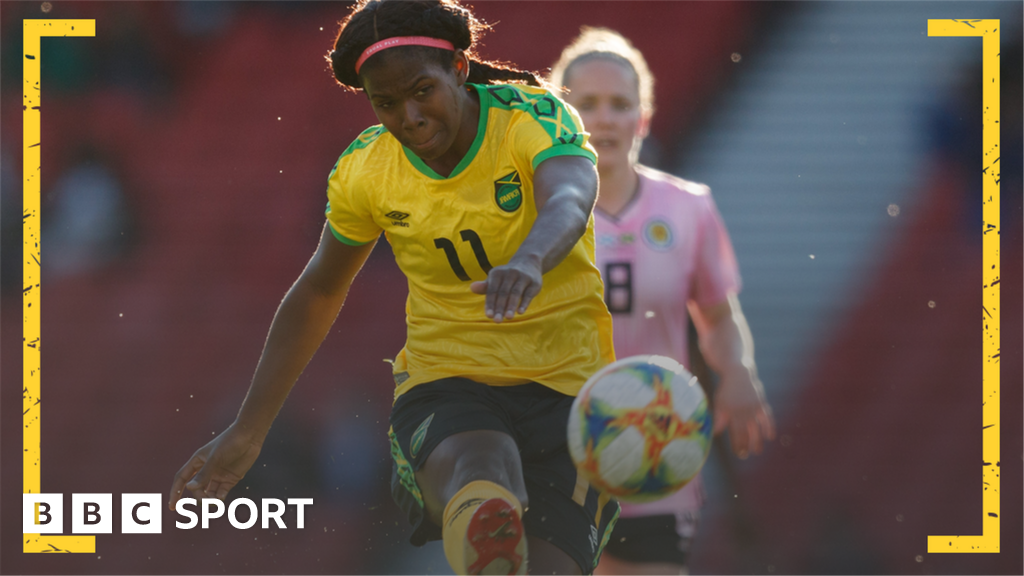That ability to deal with “struggles” and move on has already led to great success in football and academia, despite humble beginnings.
Born to father George, a shoemaker, and mother Monica, a chicken farmer, a year before the Jamaican men’s team qualified for their first World Cup in 1998, as a child Shaw would help out with her dad’s business during the summer holidays.
She was also keen to play football with her older brothers. Her mother stopped her because she thought the sport was too rough.
But once her brother Kentardo began to teach her, aged 10, it wasn’t long before her rare combination of speed, power and skill began to be noticed and when the Jamaican federation came calling, her mother soon changed her mind.
It was also around this time that Kentardo gave her the ‘Bunny’ nickname. It stuck.
“I enjoyed my mum’s carrot juice and carrots and I had two big teeth, so my brother would always say: ‘You eat them like a bunny rabbit’. He started calling me that, and initially, I didn’t like it. Everybody laughed at me, and I would cry and get mad. But then I thought, you know what, I’m going to embrace it.”
Aged 14, ‘Bunny’ was playing for the Jamaican under-15, under-17 and under-20 teams. While representing her country during a game in Florida, she was spotted. That led to scholarships at Navarro College in Texas and Eastern Florida State College before she was alerted to the University of Tennessee.
The soccer coach at Tennessee, Brian Pensky, got a text from a friend saying he should go and watch Shaw play. When he did, it was a “slam-dunk moment”.
“You could tell she was unique straight away,” he says.
“She’s 5’11”, strong, quick, technical and smart – in many ways the complete package. Tall women in soccer tend to be target players or centre-backs but her ability to change direction and her passing ability and vision made me think she was different.”
Pensky wasted little time in signing Shaw up, converting her from a midfielder to a striker. The move paid off massively – both for his team and the Reggae Girlz.
The University of Tennessee reached the NCAA quarter-finals for the first time, and Shaw was the team’s top scorer in both 2017 and 2018.
For Jamaica, she scored 19 goals in 12 games en route to France, making her the tournament’s leading scorer in qualification.
Shaw was “incredibly popular” on campus, Pensky says. He talks fondly of her “infectious” smile and how he would get texts from fellow athletic coaches and directors after Shaw had paid them a visit.
“They’d be telling me that Bunny had just left their offices and their faces were hurting because they’d been laughing so much,” he says. “Her character and wit are sensational. She’s a leader but she’s incredibly humble.”
Pensky got an immediate insight into the tragedy in her personal life the day she arrived at the University of Tennessee as a shy student in the autumn of 2017.
“When I met her, she told me that her cousin had been shot, a drive-by shooting, that morning. Thankfully, he survived. What she’s been through is well beyond anything I’ve seen, so really during the time she has been with us, I’ve just tried to lend an ear when she wants to talk.
“There are no kids in her team or probably in the whole university who have suffered the repeated tragedies she has been through. To manage that all herself speaks to another level of maturity and how goal-driven she is. She’s just proud.”



